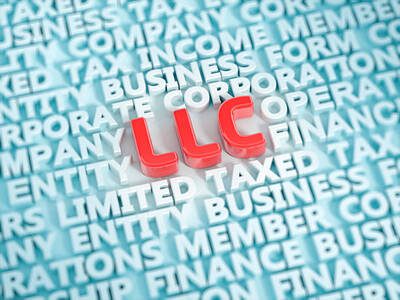What’s the Difference Between an LLC and a Corporation?

LLC (Limited Liability Company) and Corporation are two distinct business entities that offer different benefits and structures for business owners. Understanding the differences between them is crucial when deciding on the appropriate legal structure for your business. Let’s explore the key distinctions between LLCs and Corporations.
1. Legal Structure and Formation
· LLC: A Limited Liability Company is a flexible business structure that blends elements of partnerships and corporations. LLCs are formed by filing articles of organization with the appropriate state agency. They are governed by an operating agreement, which outlines the company’s management structure, ownership percentages, and operational guidelines.
· Corporation: A Corporation is a separate legal entity from its owners (shareholders). It is formed by filing articles of incorporation with the state and is subject to more formal requirements. Corporations have a hierarchical structure with shareholders, directors, and officers. They operate based on bylaws, which outline the corporation’s internal regulations.
2. Liability Protection
· LLC: The main advantage of an LLC is limited liability protection. LLC owners, known as members, are generally not personally liable for the company’s debts and obligations. This means that their personal assets are protected from business-related liabilities, such as lawsuits or debts incurred by the LLC.
· Corporation: Like an LLC, a Corporation provides limited liability protection to its shareholders. The personal assets of shareholders are typically shielded from corporate debts and legal liabilities. However, certain situations can lead to the “piercing of the corporate veil,” where shareholders can be held personally liable, such as fraudulent activities or inadequate capitalization.
3. Taxation
· LLC: LLCs have flexibility in their taxation structure. By default, they are treated as pass-through entities for tax purposes. This means that profits and losses “pass through” the business to the individual members, who report them on their personal tax returns. LLCs are not subject to double taxation at the entity level.
· Corporation: Corporations have two potential tax structures: C Corporation and S Corporation. By default, corporations are considered C Corporations. C Corporations are subject to double taxation, meaning that profits are taxed at the corporate level, and dividends distributed to shareholders are taxed again on their personal tax returns. However, S Corporations, which have certain eligibility requirements, can avoid double taxation by passing corporate income, losses, deductions, and credits through to shareholders’ personal tax returns.
4. Management and Ownership
· LLC: LLCs provide flexibility in management and ownership. They can be managed either by the members themselves or by appointed managers. The ownership interests of an LLC are divided into membership interests, which represent each member’s ownership percentage or contribution.
· Corporation: Corporations have a more formal management structure. They are managed by a board of directors elected by the shareholders. The directors appoint officers who are responsible for the day-to-day operations. Ownership in a corporation is represented by shares of stock, and ownership interests are determined by the number of shares held by shareholders.
5. Formalities and Compliance
· LLC: LLCs have fewer formal requirements and compliance obligations compared to corporations. They have more flexibility in terms of record-keeping, annual meetings, and reporting obligations. However, some states may require LLCs to file annual reports or pay franchise taxes.
· Corporation: Corporations are subject to more formalities and compliance requirements. They are required to hold annual shareholder meetings and board of directors meetings, keep detailed corporate records, and file annual reports with the state. These formalities help maintain the separation between the corporation and its shareholders.
In summary, the main differences between LLCs and Corporations lie in their legal structure, liability protection, taxation, management and ownership, as well as the level of formalities and compliance. It’s crucial to consult with a qualified attorney or tax advisor to determine which business entity best fits your needs and specific business interests.
For more information on how to set up your business entity, contact us: https://franchisefundingsolutions.com/contact/
